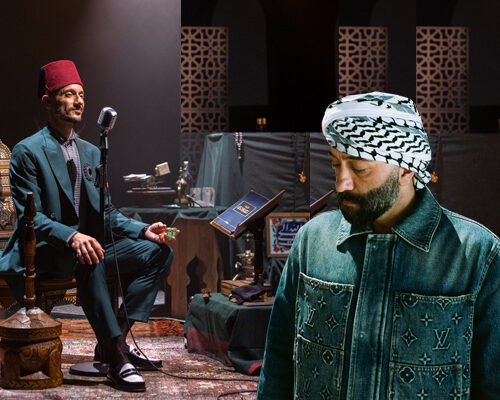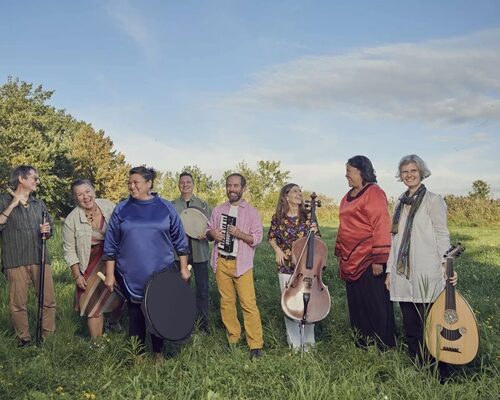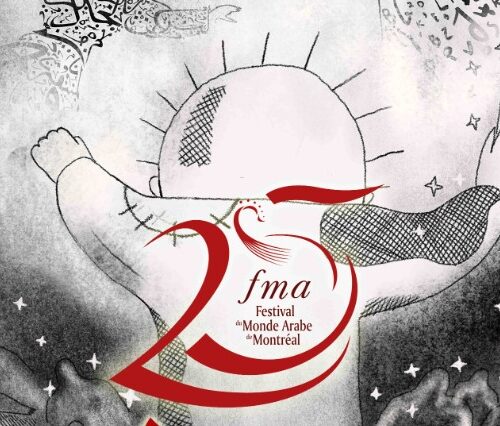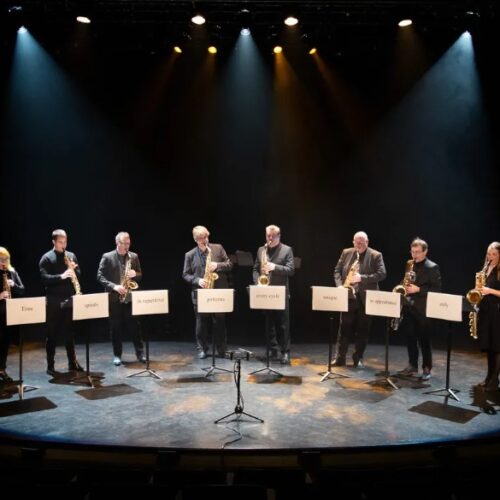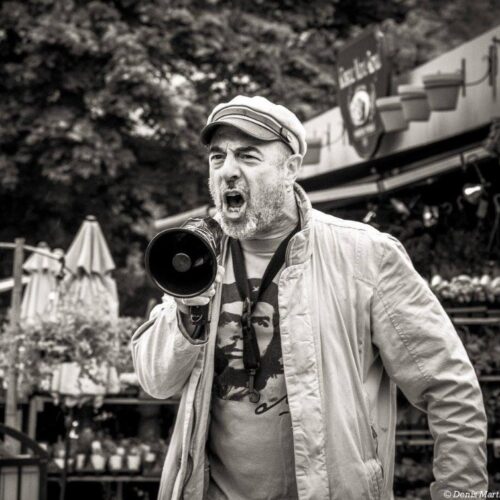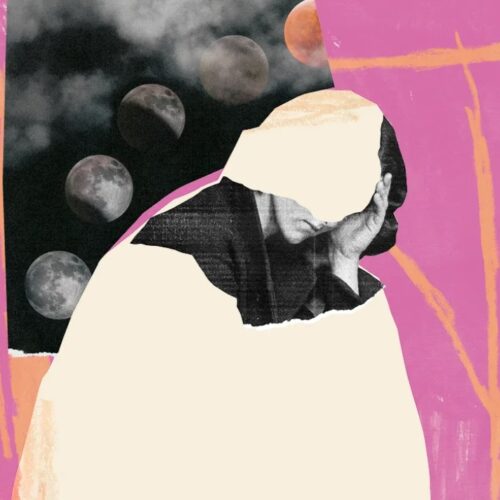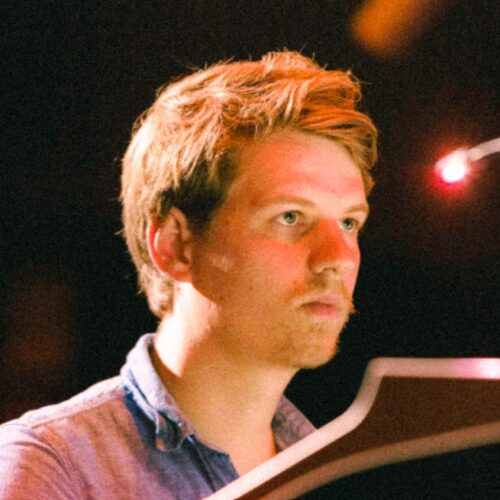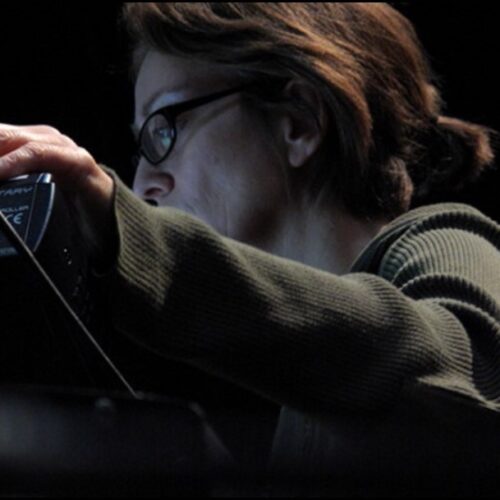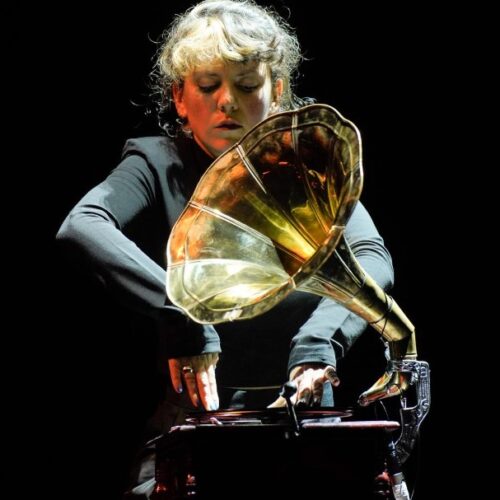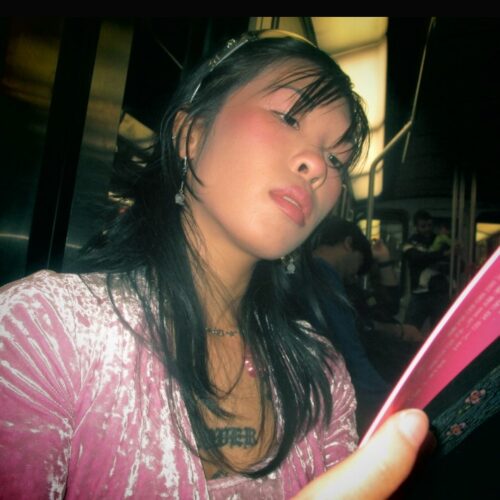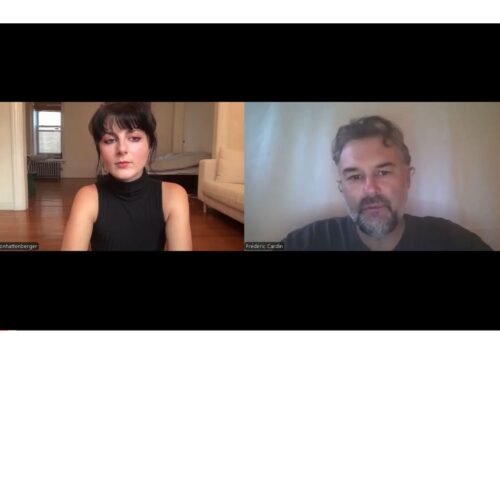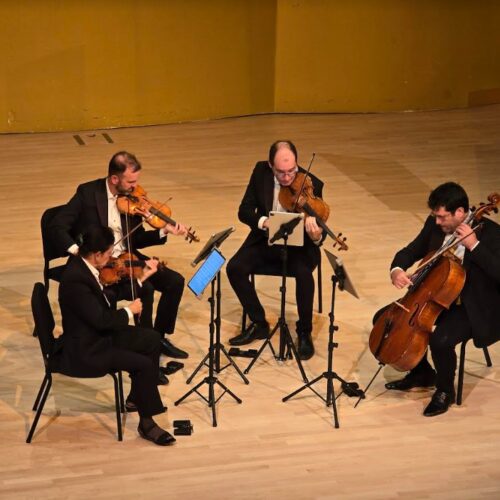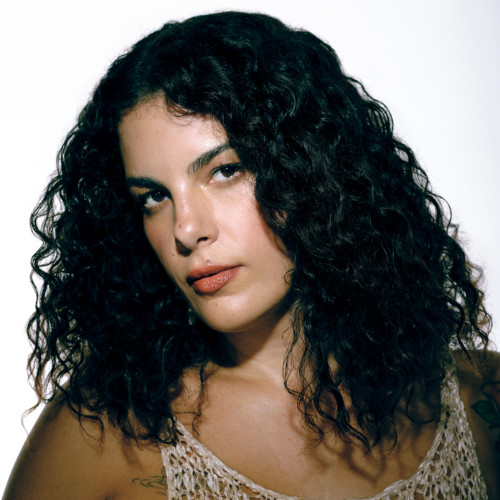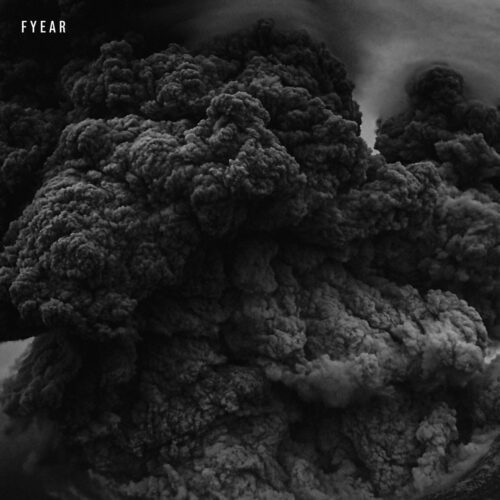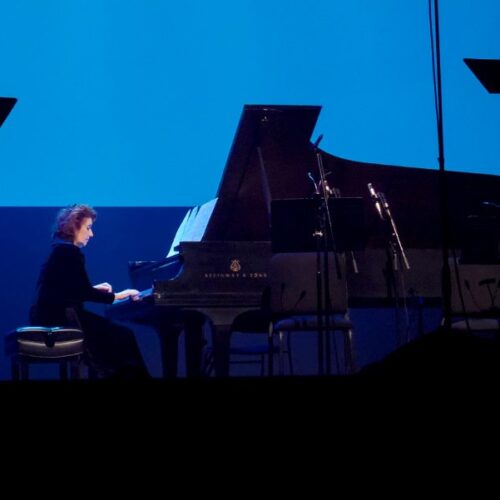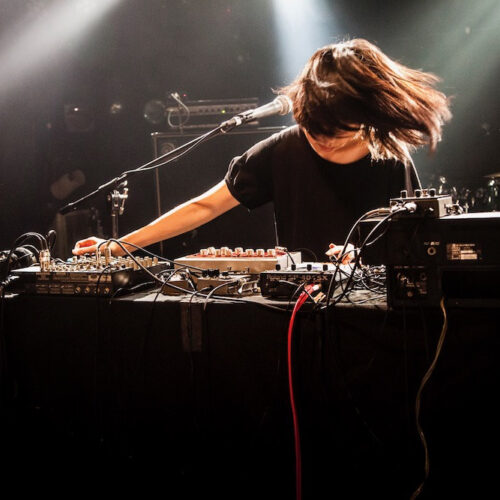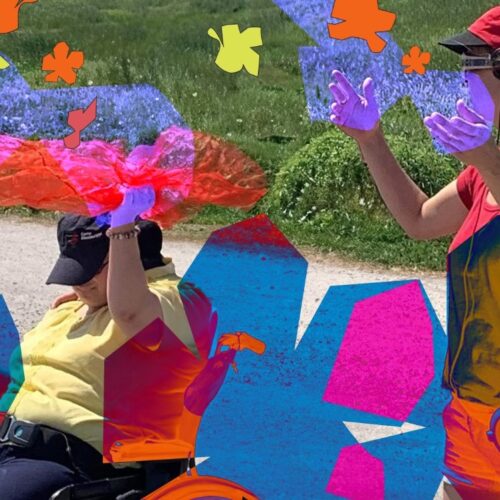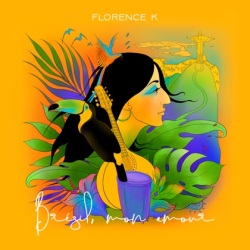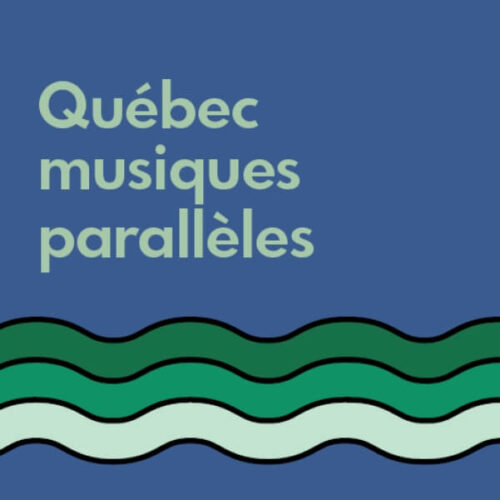Additional Information
Makossa, bikutsi, esséwé, rumba, afrobeat, jazz, soul, R&B, you name it. Valérie Okoumé inspires and breathes out all this music in her afropop, a globalized repertoire she concocts with her husband Guy Nwogang, a master percussionist. Born into a music-loving family, the Cameroonian-born French singer was encouraged from an early age to pursue a career, which led her to the American School Of Modern Music, where she studied voice, piano and other rudiments for five years. This training earned her a choice job with the late Manu Dibango, “her benefactor from whom she learned the meaning of performance”. She has also worked with Youssou N’Dour, Flavia Coehlo, James BKS, Alisha Brilla and Delia Fischer, and has released the albums Kwin na kinguè (2017) and Monè (2022). A woman with a head and a heart, a strong and stubborn woman, Valérie Ekoumé is part of this new generation ready to transgress the codes of African pop and cross all the frontiers of the known universe.
PAN M 360: By videoconference, we’re at your place, in this rustic and very attractive room in your home. Is it in the Paris region?
Valérie Ekoumé: No, we’re in the east of France, near Besançon. I’m a former Parisian who doesn’t regret Parisian life at all.
PAN M 360: You’re really here! Yes, it’s great. It’s been reported that a lot of people have been fleeing Paris in recent years.
Valérie Ekoumé: Yes, and it got worse during the pandemic.
PAN M 360: Have you ever been to Montreal?
Valérie Ekoumé: The first time I came to Montreal was with Tonton – Manu Dibango. I think it was in 2010, something like that, we played at Nuits d’Afrique.
PAN M 360: What is your relationship with Cameroon, the country of your parents and ancestors?
Valérie Ekoumé: I was lucky enough to have an extraordinary childhood. I was born in France, but as my parents separated at a very young age – I must have been a year old or something – I was sent to Cameroon to live with my grandparents.
PAN M 360: That was a real immersion experience for you.
Valérie Ekoumé: Exactly! It all started when I was very little. When I was six, I came back to France, but two or three years later, my mother decided to change air and I went back to Douala until I was 13. So I was really immersed in my Cameroonian culture. In fact, I have a double culture because I’m also French.
PAN M 360: What do you express today as an artist with multiple identities?
Valérie Ekoumé: Cameroon is part of me for sure, so it’s essential that what I express is as authentic as possible. And then fate led me to accompany artists like Manu Dibango, and that was that.
PAN M 360: You started out as a singer, but gradually became a soloist.
Valérie Ekoumé: I come from a musical family, and I’ve always wanted this career. When I started singing, I must have been 15, and it was my goal to be able to express myself. For me, being a chorister was one of the steps that would enable me to learn my trade.
PAN M 360: Not every chorister succeeds in becoming a soloist. There are super choristers who are excellent singers, but who don’t have the authority on stage as a soloist. Clearly, this is not the case for you, as you have a solo career that seems to be going very well!
Valérie Ékoumé: As I was saying, it’s always been a goal. I trained myself, I went to music school, I learned the piano, I learned to read music, to write it, I studied singing. Today, I’m well looked after by Guy, my husband, who also has a very deep-rooted musical culture in Cameroon.
PAN M 360: It really is a family business!
Valérie Ekoumé: That’s the way the times are too. We’re all entrepreneurs, musicians, and directors. We don’t have a choice. You have to fend for yourself. The music ecosystem is very difficult right now. You really have to get organized, but in the end, we’re happy. In any case, when we started out, ten years ago, we were a bit annoyed. What used to be the case for artists was signing with a management team and a record company.
PAN M 360: And now?
Valérie Ekoumé: Not any more. We’re producers, we own our work. We don’t have to prostitute ourselves. And that’s fine. Anyway, that’s the future. That’s the way it’s going to be. It’s a question of positioning ourselves well. Streaming, on the other hand, is very complex. Revenues from recorded music are lower than they used to be. So you have to do more live shows. And when you’re not touring, you’ve still got things to do: looking for bookings, taking care of the administrative side, etc.
PAN M 360: Husband and wife, parents, creative and business partners, it’s total fusion!
Valérie Ekoumé: It’s a fusion, yes. And then our daughter comes to concerts and tours with us. We travel as a family.
PAN M 360: That’s great because this business isn’t really easy on married life.
Valérie Ekoumé: That’s true. Quite early on, I realized that people expect the wife to stay at home and look after the children. When I had our child, I said to myself, “My life’s over, I can’t do anything else, as I love to travel and all that. And so, our life has adapted to this context, and that’s good. I’m part of a generation of women artists who travel with their children.
PAN M 360: As long as they don’t go to school, it’s perfect!
Valérie Ekoumé: Even when they’re at school, you can still get them to work when you’re away for a while. I prefer to travel with my child because, in particular, if you leave a child at home, you don’t know who you’re leaving him with. And we’re two parents in the same business, so we can help each other out.
PAN M 360: Let’s get back to the music. The music you make is inspired by earlier generations and also more recent Afro-pop. It’s also quite respectful of Cameroonian music, which, as we know, is rhythmically diverse.
Valérie Ékoumé: Actually, that’s really Guy’s part, because it’s all about rhythm, and he’s a real rhythmist.
PAN M 360: He’s a percussionist, producer and manager. He does a lot of things! He plays with you on stage, he works with you in the studio and so on. How does it work when you’re making songs?
Valérie Ékoumé: I sit down at the piano, compose the basics and then it’s a bit of a production line. I pass him the stuff and he integrates the rhythms. We like to represent all the rhythms of Cameroon and not make anyone jealous. Cameroon is musically very rich.
PAN M 360: And yet this is not a folk repertoire from Cameroon.
Valérie Ekoumé: People like to see Africa as more traditional, whereas Africa is big and increasingly modern.
PAN M 360: It’s true that some people still have this fixed (and colonial) image of Africa. Your Africa is clearly more global.
Valérie Ékoumé: It’s not embarrassing to make little nods to other cultures, because that’s always interesting for us as musicians. If you’ve listened to Strong Beautiful Ladies (SBL), for example, it’s really an Afrobeat sound, a nod to Fela Kuti and Tony Allen.
PAN M 360: Would you be interested in incorporating a little electronics? At the moment, it’s not really part of your sound, with a few exceptions.
Valérie Ekoumé: It’s true that we’re much more acoustic with our instruments. But maybe in the future… We like our music to be able to renew itself.
PAN M 360: And on stage?
Valérie Ekoumé: The arrangements are different, and that’s the point. Personally, I’ve never liked going to a concert to listen to music the way I listen to it on record. I’ve already got the record.
PAN M 360: There’s also the energy on stage, which changes things.
Valérie Ekoumé: Exactly. And then there’s the interaction with people. And when you want to communicate with people, they have to be able to see who you are. Before, I was really focused on how I presented myself, my image and all that, but in fact, people don’t care. As long as they can see you for who you are, that’s what matters.
PAN M 360: There are 4 of you on stage?
Valérie Ekoumé: Yes, there are 4 of us: bass, drums, guitar and me, who does a bit of keyboard work as well as singing. We also have pre-recorded sequences that replace the arrangements. And communication with the audience means that the audience becomes the 5th member of the band.
PAN M 360: Any Canadian dates this summer?
Valérie Ékoumé: In Canada, we’re doing 6 dates, including 3 in Quebec. It’s our 2nd year in a row there, by the way. We like it there; we often have the impression of being better understood.

